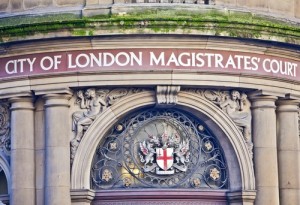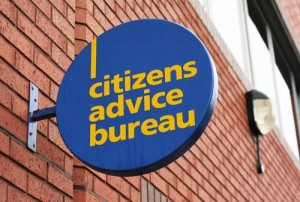Dealing with Existing Debts
Debt is an important issue for people living with schizophrenia. Without a doubt debt will increase the amount of stress and anxiety that you are under and if you do not take control of your debts this stress will only get worse. If you have started to receive threatening letters from creditors it is very tempting to stop opening them and try to pretend that it isn’t happening but make no mistake if you are in debt the creditors will not forget about you and the longer you leave it before taking action the worse the consequences will be for you.
You may also find that when you get into debt you lose the motivation to look after your finances properly. On the other hand if you grasp the nettle and try to get in control of your debt you will almost certainly find that it wasn’t as bad as you thought it would be and that you will feel under less stress as a result.
First of all we will explain a couple of the terms which you will become familiar with during the process of managing your debts; debtor and creditor. The debtor is you, the person who owes the money to other people whereas the creditor is the person to whom the money is owed, say your landlord in the case of rent arrears.
If you suffer from paranoia you may well find that the debt recovery action by creditors such as frequent ‘phone calls or threatening letters may make your paranoia worse. By taking control of your debts at an early stage you can help reduce recovery action by creditors and alleviate your paranoid thinking.
If you are feeling desperate or suicidal because of your debt problems it is vital that you talk to someone you trust soon. Debt problems even very severe ones always have a solution. There is no need to suffer in silence and even if you have no close family or friends who can help there are organisations out there who can help you get back in control. An episode of schizophrenia is often a very isolating experience and dealing with the fallout such as crisis debts is more difficult if you have to face it alone. Try to talk to someone early on: it will help.
Debt advice is a large and complex subject and if you have problem or crisis debts then it is vital that you take guidance from one of the specialist organisations listed at the end of this information sheet. However we have covered here some of the issues around debt that are especially pertinent to people with schizophrenia.
Getting Your House in Order
It is key to successful debt management that you start to get your finances back under control and stop getting further into debt. There is no point in managing your existing debts if you are only starting to acquire new ones. Our information sheet on Staying Out of Debt contains some useful details on how to budget and reduce your costs.
Do You Have to Pay All Your Debts?
In English law it is not usually possible to have your debts cancelled simply because they arose as a result of mental illness. It would be necessary for you to prove that the creditor knew that you were mentally ill at the time you took out the debt and that would normally be very difficult to do. In addition insanity is not normally a defence to a civil action in the same way that it can be a defence to a criminal action. So it is usually the case that any debts that arose due to your mental health condition will have to be paid off or some form of debt relief taken.
That said there is nothing to stop you appealing to the creditor and asking them to excuse your debt on compassionate grounds. Many large creditors will do this particularly with smaller debts if you can explain the circumstances of your problems in detail and can show that you are now back in control of your finances and can continue to be a valued customer for them. You will need to write to the creditor and ask them to consider doing this with details of your mental health problems and the reason why it caused you to get into debt. There is no obligation on the creditor to agree to do this so your letter must be in the form of a request not a demand.
Here is what one person with schizophrenia said about this;
“When I fell ill I simply stopped paying bills and got into a huge amount of debt. One of the most difficult things was having my ‘phone cut off so I couldn’t communicate with my family and friends. When I was better I wrote to BT and explained the situation and asked them if they would reconnect me on compassionate grounds. I was over the moon when they called to say that they had reconnected the ‘phone and forgiven the debt. They have had me as a loyal customer ever since so it has been good for both of us”. David
Debt Collection
If you fall into debt then the creditor will start to try to contact you by ‘phone, by writing to you or by email. This is a normal part of the debt collection process. These communications will initially come from the creditor themselves but if you do not respond to them they may well pass the debt to one of the debt collection agencies. These are companies that, for a fee, offer to collect debts for large firms. The current UK government guidance to lenders is that they should not pass the debt to a debt collection agency if the debtor suffers from a mental illness so getting in touch with the creditor early on and explaining your situation may well save you from getting threatening letters from debt collectors later.
Disclosing Your Diagnosis to the Creditor
This is a difficult decision to which there is no easy answer. Only you can make the decision as to whether you will disclose your diagnosis to a creditor or not. The experience of many people with schizophrenia on this issue has been very patchy. Some creditors have appreciated the information and treated the person with more respect as a result of the disclosure whereas in other cases the organisation has not been as accommodating.
There is some useful information in our information sheet on Disclosure about telling people. Bear in mind that companies have a legal duty to make reasonable adjustments to the way that they treat people with disabilities such as schizophrenia however some organisations are better at putting this into practice than others.
If you do decide to disclose you may like to think about describing your condition in other ways when talking to creditors for instance describing it as a “breakdown” or as “serious mental health problems”. You may also like to give the creditor a brief outline of how it affects you practically for instance telling them that your condition causes you to experience anxiety or that your medication leaves you feeling very tired.
However you should not say anything that would minimise the seriousness of your condition. It is important that the creditor understands that your condition has seriously affected your ability to look after your financial affairs. You may also like to ask the organisation if they have any staff who are dedicated to dealing with people with disabilities or ask to speak to one of the supervisors at the call centre if you are ‘phoning. Most responsible organisations will treat you with respect if they know that you suffer from a disability however the onus is very much on you to communicate that to them. If you don’t tell them they won’t know.

Try to set aside a regular time each week for dealing with your debts. (Image: Picsfive on Shutterstock)
Time Management
It is a good idea to set aside a regular time each week for managing your debts. Make sure you stick to this time and don’t neglect it. Deal with your debts during this period and leave the remainder of the week to think about other things. That way you can be certain that you are staying on top of the problem whilst at the same time not allowing your debt problem to dominate your thinking and time.
You will find that having debts will involve a good deal of form filling. Some people are better with forms than others but if you are in debt it is a skill you will need to develop. If you find forms difficult then try to break them down into manageable portions maybe completing half the form one day and the other half on the following day.
Talking to Creditors
It is vital that you communicate with your creditors. If you do not reply to their letters or messages about your debts the creditors will escalate their enforcement action perhaps by starting court proceedings against you which will only increase your stress and anxiety. A visit from the bailiffs trying to seize your property is probably one of the most stressful events in the whole debt experience but can be avoided if you talk to the creditors and the earlier that you start talking to them the better it will be for you.
Prioritising Debts
To be successful in managing your debt issues you will need to think about prioritising your debts, that is identifying which debts to deal with first: some debts are more important or urgent than others. You will find that some creditors are more enthusiastic about chasing their debts than others and you may be tempted to respond to the creditor that makes the most noise first. This is often a mistake.

Court fines should be given the highest priority when managing your debts. (Image: Stuart Monk on Shutterstock)
First look at any debts that might threaten your freedom. The ones to take really seriously here are court fines which may result in you being sent to prison if you don’t pay. Also important are arrears of maintenance and income tax or VAT debts. These can also result in imprisonment in extreme cases but are generally less pressing than court fines.
Then give the next highest priority to any debts associated with your home such as arrears of rent or mortgage payments, service charges and council tax or any loans secured against your home if you have any, even though these debts may not have high rates of interest. This is because above all it is vital to hold onto your home and do not end up homeless and living on the streets. It is vital that you regain control over any debts on your rent or mortgage because if you do not you can and will end up being evicted from your home.
This may be difficult as you may be coming under heavy pressure from other creditors to settle their debts first. You may even have unscrupulous debt collecting agencies suggest that you miss a rent or mortgage payment in order to pay their debt. Don’t fall for that: no matter how much pressure they may apply, credit card or finance companies cannot usually have you evicted from your home.
Next look at any debts associated with your daily living expenses such as arrears on your gas or electricity bill, ‘phone and water, giving water the lowest priority as water companies cannot disconnect you for debt. These are important because these services are necessary for daily living and life will get a whole lot more complicated if you build up arrears on your bill.
For instance if you get into serious debt with your electricity or gas, the energy supply company may insist on changing your meter from a credit meter (if you have one) to a pre-payment meter that you pay by means of a card or key Your new meter will collect any debt owing to the company by making a daily charge against your credit. So if the debt charge is £1.00 per day then you will have to put £7.00 per week onto the card just to pay off the debt and before the meter will give you any electricity. In this way the energy supply company very neatly gets its debt paid back before it allows you to have any more electricity or gas. And don’t forget that if you do not agree to having the meter changed the energy supply company can get a court order against you. This can be an extremely stressful process.

Failing to prioritise debts could end up with you losing your home. (Image: Photographee.eu on Shutterstock)
Then take any debts for which enforcement action is imminent. For instance if a creditor is threatening to obtain a County Court Judgement against you then this debt should be given a high priority.
After those debts have been dealt with any other debts can be attended to in order of the rate of interest being charged. Deal with the ones with high rates of interest next.

Debt advice is available from organisations like Citizens Advice who may have a branch in your area. (Image: Thinglass on Shutterstock)
Debt Advice Services
Debt is a very large and complex subject and there is clearly a limit to the amount of information that this sheet can convey so it is a very good idea if you get in touch with one of the debt advice services run by one of the not-for-profit organisations such as Citizens Advice, Step Change or Christians Against Poverty . This is because the advisors from those sorts of organisations have a great deal of experience in dealing with debt and also because creditors will often suspend enforcement action if they know that you are being helped by one of those organisations.
These organisations have local branches across the UK where you can get face-to-face advice from one of their advisors. However it is worth bearing in mind that the advisors from those organisations are often unpaid volunteers and not professionals and so it is a good idea if you can play your own part in dealing with your debts and not leave it all up to them. Dealing with debt is an integral part of your recovery and it is important that you take responsibility for your recovery.
Beware of debt management companies who advertise on the TV and offer to manage your debts for a fee. Their service is often no better than that provided free by the not-for-profit organisations. There is in general no need to pay for debt advice. These companies may try to get you to take out a debt consolidation loan which will pay off all your debts and leave you with one monthly bill to pay. Often debt consolidation loans have high rates of interest and are not the best way forward as they will cost you more in the long run. However they do have the advantage that you can settle your debts before any enforcement action is taken. In general although these arrangements have their place they should be approached with caution.
Credit History
Most adults in the UK have a credit record which details any financial arrangements that you have had such as loans and bank accounts and also some personal information about you such as your entry on the Electoral Roll. These records are maintained by the credit reference agencies and are available for any prospective lender to look at. If you get into financial difficulties then the creditor will give details about the problem to the credit reference agency and it will appear on your credit record. Part of your credit record is an overall score which gives lenders a broad overview of the risk that you present if they choose to do business with you. The lower the score the poorer your credit rating.
One of the important issues around your debt management process is the problem of black marks appearing on your credit record such as County Court Judgements, Charging Orders and Default Notices. These marks will remain on your credit record for six years and will affect your access to finance and financial services such as bank accounts during that time. In addition if at any time in the future beyond that six years you are asked by a lender if you have had a bad credit record in the past you must answer them truthfully or you will be committing a criminal offence.

A poor credit history may haunt you for years to come. (Image: Andrey_Popov on Shutterstock)
It is therefore vital to understand how important maintaining a clean credit record is and take these issues very seriously. The best way to avoid black marks on your credit record is to take action on your debts at a very early stage and to make every effort to pay them off if you can.
Bankruptcy and Other Debt Relief Measures
It is the common experience of people with long term mental health problems such as schizophrenia who have large debts to be advised by debt advice organisations to apply for bankruptcy as a means of clearing their debts and making a fresh start. It is often claimed that the bankruptcy will be removed from your record after a short time. Please be aware that bankruptcy is a very serious issue that should be approached with a great deal of caution.
Once you have been declared a bankrupt you will always be a bankrupt in the eyes of the law and many financial organisations. People who have been made bankrupt will find it more difficult to get credit in the future, will have restricted access to certain financial services such as some bank accounts and most worryingly are excluded from certain types of employment such as some jobs in the public sector, some professions and jobs in the financial services sector including some call centre work. Furthermore they will endure the stigma of bankruptcy for the remainder of their lives. If there is any way that you can pay off your debts, even if it takes a long time, then that is often a far better option than bankruptcy.
There are alternatives to bankruptcy such as Individual Voluntary Arrangements (IVA), Debt relief Orders and Administration orders. IVAs involve coming to an agreement with all of your creditors on repaying a proportion of their debts, the amount you repay being based on how much you can afford. IVAs are drawn up by insolvency practitioners who will charge a fee for their work and whilst not involving the same degree of stigma as bankruptcy should still be approached with caution. You can read more about all of these on the .Gov website and on the Money Advice Service website . Detailed information on these measures is outside the scope of this information sheet and if you are considering any of these then we strongly recommend obtaining help from one of the debt advice services listed below. There is quite a useful summary of the options available on the National Debtline website

The Royal British Legion can help people who have served in the military and their families. (Image: Michaelpuche on Shutterstock)
Charities
There are many charities that exist to help people who have fallen on hard times with financial support. For instance if you or your parents have served in the armed forces you may be eligible for help from one of the forces charities such as the Royal British Legion. Similarly there are many charities that help people from particular industries or business sectors: the civil service has its own charity as does the construction industry and again if you or your parents have worked in one of these industries they may be able to help you.
It is impossible to list all of the benevolent charities in the UK so we suggest that you do a bit of research of your own to find a charity that may be able to help you. You can find out more about these options by searching on the internet or by asking at your local library but here are a few examples:
The Lighthouse Club helps people who have worked in building or construction and their families.
The Royal British Legion helps people who have served in the armed forces and their families.
The Electrical Industries Charity helps people who have worked in the electrical or energy industries and their families.
The Civil Service Charity helps civil servants and their families.
Newstraid helps people who have been involved in the newspaper trade (including working in newsagents) and their families.
The Benevolent helps people who have worked in the drinks trade and their families.
Getting Back in the Saddle
No matter how bad your debt problems there is usually a way through them and you will come out the other side and want to make a fresh start. Our information sheet on Staying out of Debt has a lot of information about managing your finances prudently and in a way that won’t risk getting into debt again in the future.
Getting a New Bank Account
If you have had problems with your bank you may find that they close your account and it will be difficult to open another account. Several of the large UK banks now offer basic bank accounts which do not require a credit scoring process to be completed and which are ideal for people with poor credit records. Opening a basic bank account is simple and straightforward: you won’t need to provide references and don’t have to be in work.
Adding a Notice of Correction to Your Credit File
If you have acquired a bad credit record because of your debts it is possible to add to your credit record a Notice of Correction explaining the reasons that you got into debt and had financial problems. There is no need to include details of your diagnosis but instead explain, in not more than 200 words, that you suffered an unexpected and long term period of serious ill health that prevented you from attending to your financial affairs. You will need to contact each of the credit reference agencies to do this but the process is quite simple and does not cost anything. If you do this please remember to remove the Notice of Correction when your credit record is cleared after the six year period as if you do not it will remain on your record and may alert lenders to your previous financial problems unnecessarily. The principal UK credit reference agencies are:
References
The content of this information sheet is based on the author’s personal experiences.
Further Help
Debt advice is a complex subject and this information sheet only scratches the surface. We therefore recommend that you get advice from one of the specialist debt advice services listed below and making enquiries with your local library about help available in your local area:
1. Step Change
Copyright © December 2015 LWS (UK) CIC.







